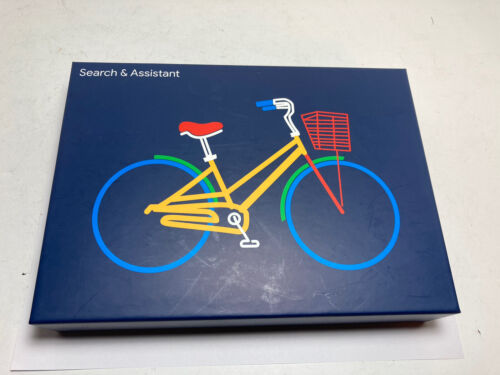
In this article we will talk about the basics of knitting and how yarn and needles are selected. You will also learn how to cast on. Once you know the basics you can move onto more advanced topics. These are some projects that you can try if you're a beginner. These projects are very simple and will help you learn to knit. These projects are great to learn basic knitting techniques.
Basic knitting stitches
You should learn the basics of knitting if you're new to knitting. There are many patterns online and in knitting guides. These stitches are the most basic and easiest to learn. Even beginners can make beautiful knitwear by using the basic stitches. These stitches can create a variety pattern, from baby clothes to sweaters. These are some examples.

Choosing yarn
Choosing yarn for beginners is a challenge. There are a huge range of yarn types and brands to choose from. If you are just starting out, it is a good idea to stick with trusted yarn varieties. It is a smart idea to choose yarn based on weight. The Craft Yarn Council has created a standard weight system that applies to all ball bands. This will make your decision easier. A yarn that is suitable to beginners can also be bought at a reduced price than other yarns.
Choosing needles
You need to select the right size needle for your knitting project. Gauge refers to the number of stitches or rows per centimetre. This information should be included with the pattern. A good size needle is essential for a successful project. There is not one size that fits all. Knitwear designers and vintage patterns all have different measurement systems. A knitting needle size guide is necessary to ensure that you get the correct size needle.
Casting your eyes
Casting on stitches is the first step in knitting. Casting on stitches is the first step in knitting. This technique, often abbreviated CO, creates slightly differing starting edges. Some are stiff, while others can be flexible and stretchy. The amount of yarn needed for your project will affect the technique you choose. Here are some basics for casting on. Next, practice it using your knitting needle.
Knitting from left and right
A row is a set of stitches that are attached to a needle. It is common to start at one end of a row and then work your way down. The working yarn is typically located at the back of the needle. By rotating the needle counterclockwise, you will work your route to the middle of each row. This will move the yarn to the desired location. Once you have the correct orientation, you can begin knitting. Beginning knitters can begin by working left to right.

Fibers to use
No matter your level of experience, it is important to choose the best yarn for knitting projects. You need both a needle and yarn, but the type of yarn that you use will determine how much you need to purchase. Acrylics and wool/acrylic mixes are good options for beginners. These yarns are easy to use and smooth. Also, choose a ball of yarn rather than a hank because it is easier to manage.
FAQ
What are your educational hobbies and interests?
An educational hobby involves a sport or other activity where you can learn something from doing it. You could choose to learn how to play an instrument or play sports.
It should be enjoyable and have fun. While you don't need to do it every day, if bored you might consider other activities.
These activities could end up costing you far more than what you pay for.
Why do we need hobbies
Hobbies are a vital part of our lives as they allow us to unwind, relax, think creatively and exercise. They also give us the opportunity to socialize, network, and have fun. They also provide us with opportunities for learning new skills and developing valuable life-long interests.
Hobbies can help us find meaning and purpose.
They are often a great way to spend free time when you don't have much else going on.
They're even fun!
If you don’t make time for a hobby then it’s probably not worth your time.
You have many choices. You might consider starting a hobby if you don't already have one.
What are observation hobbies?
Observation hobbies can be activities that you watch people do. It could be reading, watching sports or going on holiday. It could also be observing other people as well.
It's great to have observation hobbies because it helps you think creatively. This knowledge can be used later to help you with projects that you are working on for others or yourself.
If you are passionate about something, you will find it easier to learn about it.
For example, if you want to know more about football, you may watch a game or read a book about it. You could visit or take part in exhibitions if you are interested in learning more about photography.
You could also buy a guitar or play along online to music if you are a musician.
You have the option to make your own meals or take out at a restaurant if you enjoy cooking.
If gardening is your passion, you can grow vegetables and flowers.
If you are a fan of dancing, you can join a class or go out with your friends to learn.
If you love painting, you can paint pictures.
Writing poetry or stories is a passion if you are a writer.
You could also draw pictures if you enjoy drawing.
You could work as a caretaker or keeper at a zoo if you are passionate about animals.
You could choose to study biology, maths, chemistry, or physics if you are interested in science.
History lovers can watch films, read books or listen to podcasts.
If you enjoy traveling, you can travel around the world or just explore your own area.
What are some great hobbies ideas?
Hobby Ideas for people who love to learn and teach others.
Hobbies are great ways to spend time doing what you enjoy while learning something new at the same time.
While there are many types of hobbies available, most share the same characteristics. They are usually enjoyable activities that don't require a lot of effort and can be very economical.
These also involve helping others.
You may not think of yourself as a teacher but there might be something you could do in order to help someone else learn.
If you're looking for more creativity in your life, think about starting a hobby so you can share your talents with others.
Where can I find free resources to learn more about hobbies?
There are tons of websites devoted to helping people discover new hobbies.
These are our top picks:
www.trythisathome.com - This site provides a list of over 100 different hobbies. You can also find information about how to start each hobby.
www.hobbyfinders.org is a site that offers thousands of activities. It allows you to search by location, skill level and interest.
www.indiebazaar.co.uk - IndieBazaar is an online marketplace designed specifically for independent artists and musicians. The site sells hundreds of items, including artwork and music gear.
www.pinterest.com/explore/hobbies - Pinterest is a social media network that lets users "pin" images they find interesting onto their boards. Users can use boards to organize their favorite things into specific categories.
www.reddit.com /r/Hobbies - Reddit is another social media platform that lets users post links to articles, videos, or other types of content. Voting lets users vote for which posts are the most valuable.
What does a hobby cost?
It costs nothing to start a hobby. If you're serious about your hobby, it can take you years to get what you want.
But there is one thing that can help you. It's called passion'. Passion will help you put in the effort to succeed.
Once you put in the hours, you might find yourself addicted to the activity. This is where the real fun begins. Because you are enjoying what you are doing and are constantly improving. You will likely have seen a significant improvement by the end the year.
So don't worry too much about how long it takes. Try it! You might be surprised at the results!
What hobbies are popular right now?
Popularity does not always mean that you are popular. It can be used to justify mediocrity. The fact is that most people do not have time to pursue any hobby they want. They are too busy working to make ends meet. What do you do with your spare time? You could open a business.
It's not easy. You will need to overcome many obstacles before your idea can become a reality.
A hobby is a great option if you're looking to do something different than run a business.
Hobbies can be more than just creative pursuits. There are many types of hobbies. There are many hobbies available, including:
-
Gardening
-
Cooking
-
Photography
-
Reading
Statistics
- I am 100% biologically a woman (discover.hubpages.com)
- In comparison, men in the “no humor” condition were refused 84.6% of the time and were only accepted 15.4% of the time. (time.com)
- Studies show that just six minutes of reading can reduce stress levels by 60 percent. (oberlo.com)
- 37% Video Games 36% Travel 36% Health and Fitness (quizexpo.com)
- Almost 80% of people claim to have no hobby. (hobbylark.com)
External Links
How To
How to learn how to play a musical instrument
There are many options for learning how to play the piano. You could either go to a school, buy a book, take lessons from someone who plays an instrument, watch videos online, etc. Here are some tricks and tips to help you find your way.
-
Find something you are interested in. If you don’t like any of these instruments, you can always try another. It is difficult to enjoy an instrument if it is not something you are interested in.
-
Be patient. Learning anything new takes some time. It is unrealistic to expect to know everything instantly. Instead, keep practicing every day.
-
You should practice often. This can be done even when you are tired. This will help you remember what you've learned.
-
Choose a good place to practice. Ideal is a quiet area where you don't have to disturb anyone else. Make sure there aren't distractions. Avoid loud music, for example.
-
Have fun. Music is meant to be enjoyed. You should have fun practicing music. Being happy will inspire you to keep practicing.
-
Set goals. Set goals. You'll know exactly what you must achieve. There is no excuse for failure.
-
Keep track your progress. List all of your successes as well as your failures. You will be able to improve your skills over time by writing down all of your achievements and failures.
-
Take breaks. Sometimes, you will just need to stop for a while. Take breaks to allow you to reflect on things.
-
Ask questions. Ask for help if you are unsure or have questions about certain aspects of the instrument. They may be able help you.
-
Listening is the best way of learning. Many musicians learn by listening to the songs they love and then imitate them. This helps them understand basic concepts behind the song.
-
Read books. Lessons learned from books are more valuable than videos and classes. You will also find information in books that you won't find anywhere else.
-
Join a band. Playing with other people will make you more practice. Plus, you'll meet people with the same interests as you.
-
Learn from tutorials. Tutorials are short videos which explain many topics in great detail. Tutorials are short videos that focus on one part of the instrument. You can learn difficult parts of the instrument by watching tutorials.
-
Explore different learning methods. Some people prefer to learn through lectures, whereas others learn better by reading. Experiment until you find what works best for you.
-
Practice makes perfect. There is no way to be an expert overnight. It is important to put in a lot of effort before you can become skilled enough to perform well.
-
You can learn from other musicians. Listening to other people play their favorite songs can help you learn faster.